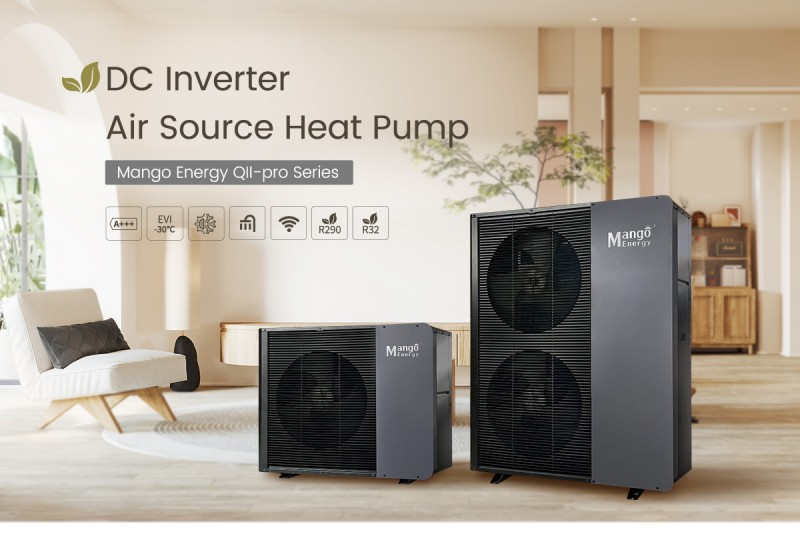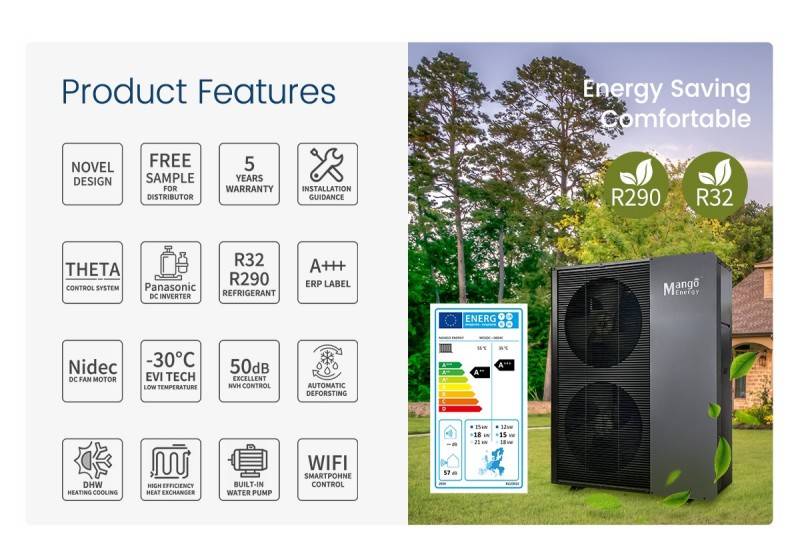
Air source heat pumps (ASHPs) have gained popularity for their energy-saving potential, but their efficiency can vary significantly based on several factors. Understanding these can help you make informed decisions when considering a commercial water heater or heat pump for your needs. Here are the key factors that influence the energy efficiency of air source heat pumps:

1. Equipment Selection and Specifications
The market offers a wide range of air source heat pumps from various brands, and quality can differ markedly. High-quality brands typically excel in design, material selection, and manufacturing processes, resulting in lower energy consumption. For instance, Mango Energy has received positive feedback for its advanced, stable, and economical air source heat pumps, making it a trustworthy choice. It's crucial to choose a unit that fits your specific needs; an oversized or undersized heat pump can lead to energy wastage. Selecting the right water heat pump specifications ensures it operates within its efficient range.
2. Usage Environment
The amount of hot water required directly affects the power needs and energy consumption of the heat pump. Additionally, the insulation of the piping significantly influences energy efficiency. Well-insulated pipes minimize heat loss, reducing the heat pump's workload and enhancing its efficiency. Since air source heat pumps rely on extracting heat from the air, ambient temperature also plays a vital role in their energy-saving capabilities. In colder environments, the pumps must consume more electricity to achieve the desired heat efficiency.

3. Installation and Design
The location of installation greatly impacts the operational efficiency of heat pumps. Ensure the unit has ample space for air circulation and avoid areas with pollution or inadequate airflow. A professional design tailored to specific needs and environmental conditions is essential for an effective hot water system. Poorly designed systems, such as improper pump selection or unsuitable water tanks, can lead to increased energy consumption.
4. Usage and Maintenance
Setting the temperature too high can lead to increased energy costs and accelerate wear and tear on components, shortening the system's lifespan. Ideally, setting the temperature of the inverter heat pump between 50°C and 60°C strikes a balance between cost-effectiveness and meeting daily hot water needs, such as bathing and washing. This temperature range helps to reduce energy consumption. Additionally, users can adjust temperature settings based on seasonal changes and personal habits—for example, lowering the setting in warmer months and raising it during colder periods. Regular maintenance, such as cleaning dust from heat exchangers and checking for worn components, ensures optimal performance and prevents energy waste.
By considering these factors, you can enhance the efficiency of your air source heat pump, ultimately saving energy and costs. Whether you are looking to purchase custom heat pumps or seeking to understand heat pump prices, remember that the right choice and maintenance can significantly impact your system's performance.


